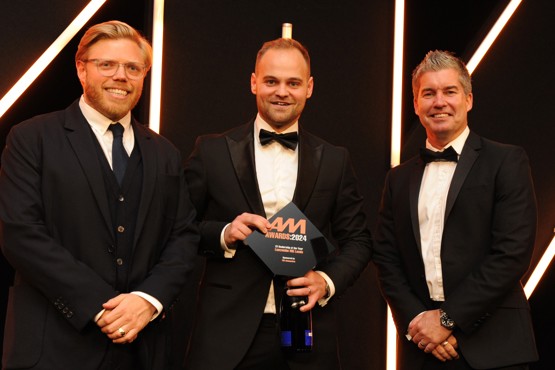How Brent Dyer Reframes Biglaw, And What In-House Counsel Should Expect Instead
Cost doesn't always equal value. The post How Brent Dyer Reframes Biglaw, And What In-House Counsel Should Expect Instead appeared first on Above the Law.

In my experience, few moments feel as disorienting as receiving a hefty law firm invoice that reads like a puzzle and realizing no one’s available to explain it. That’s not luxury, that’s just expensive confusion.
If that sounds familiar, you’ll want to hear more from Brent Dyer, director of legal operations at Trend Micro. In our full conversation, Brent breaks down what outside counsel should really be delivering, and how in-house teams can raise their expectations. Check it out here:
Redefining What We’re Paying For
Brent’s core message is clear: just because something costs a lot doesn’t mean it delivers value. Many law firms pitch themselves as luxury providers, but the in-house experience tells a different story. What’s being sold as high-touch service often translates into poor communication, delayed billing, and rigid engagement models that ignore what the client actually needs.
This isn’t just philosophical. Brent’s insights give in-house lawyers a practical framework to evaluate firms and take control of the relationship.
3 Things To Expect — And Demand
If you’re managing outside counsel, here are three areas where you can and should set higher expectations:
- Billing that saves you time, not creates more work. Push for itemized, timely, and clear billing. If your firm takes months to send an invoice or if you’re doing the cleanup they should have done, speak up. Brent suggests making timely, clean billing a non-negotiable part of your engagement.
- A clear understanding of your legal and business goals. Don’t let outside counsel assume what you want. Build in a 30- to 45-minute alignment call before each matter kicks off. Have them repeat back your objectives in writing. Brent has seen this one step turn an engagement from reactive to results-driven.
- A reliable channel for feedback and escalation. If you’ve ever flagged a concern that goes nowhere — or worse, triggers defensiveness — you’re not alone. Brent recommends asking upfront who you can talk to if something goes wrong. Treat this like vendor management, not a favor you’re asking.
For Legal Operators: Build Better Expectations Into The System
If you’re in legal ops, take this further by institutionalizing these expectations. Add billing accuracy metrics to your firm scorecards. Include matter kickoff questions that capture business goals in plain language. Create a simple feedback form clients can use post-matter.
And if a firm refuses to align on these basics? You know what to do.
The Real Luxury: Being Heard And Understood
Brent’s final takeaway? “Find your inner assertiveness and enjoy it. Don’t feel guilty about it.” When a firm treats you like you’re too small to matter, remind them that every big client once started small. Respect is not a reward, it’s a requirement.
As in-house lawyers, we are not just cost centers or inboxes to be managed. We are the client. And that means we get to define what good service looks like.
Your Turn
How are you setting expectations with outside counsel? What practices have worked best for you — or completely backfired? Share your tips, stories, or even your favorite intake forms. Let’s keep building a smarter way to partner with the firms we rely on.
Olga V. Mack is a Fellow at CodeX, The Stanford Center for Legal Informatics, and a Generative AI Editor at law.MIT. Olga embraces legal innovation and had dedicated her career to improving and shaping the future of law. She is convinced that the legal profession will emerge even stronger, more resilient, and more inclusive than before by embracing technology. Olga is also an award-winning general counsel, operations professional, startup advisor, public speaker, adjunct professor, and entrepreneur. She authored Get on Board: Earning Your Ticket to a Corporate Board Seat, Fundamentals of Smart Contract Security, and Blockchain Value: Transforming Business Models, Society, and Communities. She is working on three books: Visual IQ for Lawyers (ABA 2024), The Rise of Product Lawyers: An Analytical Framework to Systematically Advise Your Clients Throughout the Product Lifecycle (Globe Law and Business 2024), and Legal Operations in the Age of AI and Data (Globe Law and Business 2024). You can follow Olga on LinkedIn and Twitter @olgavmack.
The post How Brent Dyer Reframes Biglaw, And What In-House Counsel Should Expect Instead appeared first on Above the Law.


















































































































































